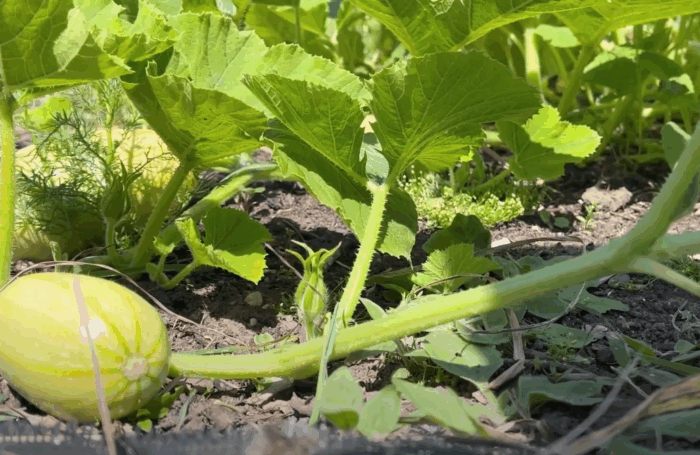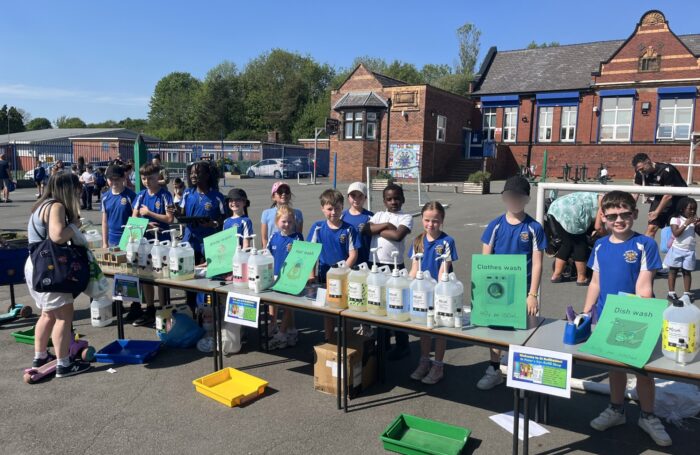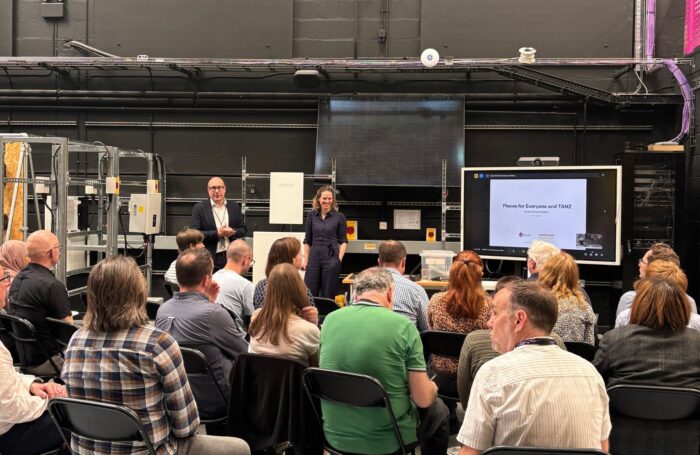Red House Farm is a 57ha, Soil Association certified organic farm on the edge of Greater Manchester. Its primary agricultural activities are the production of organic pigs, for both wholesale and in-house butchery and sales, organic cereal production, contract grazing of livestock, primarily the overwintering of organic ewe lambs from the Lake District, and environmental work with an emphasis on farmland bird populations. Red House Farm Farmer, Lewis Clare takes us through the school pilot…
The Farm
Previously open to the public, the farm now rents out much of its barn space and 19th century brick buildings to outside businesses, but its history of public access and the requirements of being a home to small businesses require a level of infrastructure not on offer at most farms, primarily disabled access toilets, ample car parking, a covered seating area with handwash facilities and the capacity to park coaches (as well as the knowledge of how to write a risk assessment!). These facilities, as well as the farm’s proximity to Manchester (less than 10 miles from the city centre) make it ideally suited as a venue for targeted educational access.
Educational access has been run on the farm for 15 years, previously on the Government’s DEFRA Higher-Tier Scheme that expired in 2019 and subsequently on the current Mid-Tier Scheme. There is a standard 2 hour trip which consists of a farm walk, taking in the heritage orchard, cereal production, pigs, environmental work and the pet sheep and chickens. I lead the tours as I have both the technical knowledge through my MSc in Organic Farming and the practical hands-on skills through farming and experience of the media and public speaking.

Broadheath Primary School
Broadheath Primary School, based in Broadheath on the outskirts of Altrincham, was offered the chance to participate in this scheme purely on the basis of proximity. It is the nearest primary school to the farm and consequently, it was the first school to be approached and they were willing to participate.
As of July 2024, there are 590 pupils attending Broadheath Primary School, of which 18% were eligible for Pupil Premium. This is reflective of the school’s catchment area, which has a broad economic span. Jordan Donnelly, the Pupil Premium Coordinator, is the school’s lead on the project, which fits into the “enrichment opportunities” element of the school’s Pupil Premium Strategy.
A group of children, believed to be most in need of this enrichment opportunity, were selected by the school to participate in the project. Many of the children come from disadvantaged backgrounds, with very little or no access to outdoor space or nature.

The Experiences
The first visit involved the standard farm tour, in a large part to familiarise the children with the farm’s layout, the farming activities undertaken and some of the basics of agricultural practices and principles. We would return to areas of key interest within the farm tour at different times of the year so that the children could see the stark differences of the farming landscape in the different seasons. This is perhaps best exemplified by simply walking through our orchard which will go from barren, leafless trees in winter, to dazzling blossom in spring, lush greenery in summer and falling apples in autumn.
Many of the subsequent activities have been decided upon at fairly short notice, primarily because of the variations in what jobs are currently being undertaken on the farm as well as with consideration for the weather. Activities undertaken by the children include;
- Moving sheep from one field to another, herding together and getting them through gates through forming a human chain.
- Transplanting strawberry plants into pots to take home.
- Tasting different herbs and planting up their seeds to take home.
- Following a drainage map and understanding how field drainage works.
- Building a bug hotel.
- Preparing a patch of land and planting meadow seeds.
- Visiting lambs and cattle grazing.
If able to roll the project out onto a wider scale, some of these activities can be developed and enhanced. Additionally, as more trips take place, we can look at ways of providing the countryside enrichment whilst tying back to work being undertaken as part of the children’s curriculum.

Development
My ambition for the farm is to become a centre of agricultural learning in Greater Manchester, for children and adults. Ideally, a horticultural offering would be established alongside the redevelopment of an existing building into a designated education room. This would provide the necessary facilities for a grower and our resident beekeeper to run education courses for groups of various ages and abilities. These offerings would then dovetail with the school trips and provide additional activities for school groups to participate in.
An issue we are increasingly facing, and is especially a hurdle for schools with more disadvantaged children, is the prohibitive cost, and lack of availability, of transport. We work closely with the Country Trust, a charity that bring disadvantaged children to farms and it’s a challenge they are frequently encountering, especially in the Manchester area. There seems to be a lack of coaches available and the cost of hiring is often in excess of £500. One of the benefits of running the project that we have with Broadheath is that the smaller number of children involved vastly lowers the transport costs as a minibus has sufficient capacity.
Impact on pupils
Jordan Donnelly, from Broadheath Primary School “The pupils have gained so much from taking part in this project. As stated, many of those chosen have had little, if any, experience of engaging with nature. Over the duration of the sessions, through a range of hands-on activities, their understanding of the world around them and the impact that we, as humans, have on this has developed greatly. We find that all pupils are incredibly concerned about the planet and sustainability, so having the opportunity to be part of a working farm and see first-hand the work that goes into running this has really opened their eyes. They can identify the changes that occur across the year, confidently talk about the challenges faced, such as weather and animal health, explain the food cycle and understand where our food comes from and have gained a real appreciation for nature. They have taken this further, beyond their half termly visits, and have started to plant their own herbs at home, make informed choices about the food that they eat and share their new knowledge in the classroom.”



